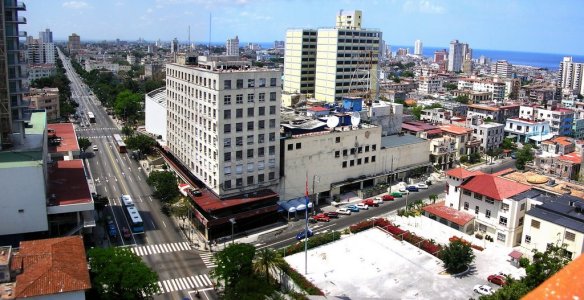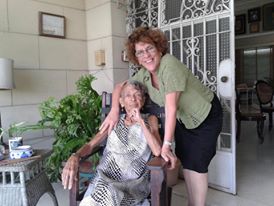Where I am there is little light and I am in my underwear because I do not want to wear the prison uniform. They give me a mattress for 5 or 6 hours at night. I only drink water and there will be no ability to respond (from you to this letter) because they don’t allow contacts.
Thanks to Lia, Gorki, Antonio and everyone for helping my mother manage things. Thanks to Aylín for the beautiful and encouraging letters. I read them as many times as I could, I would like to write you a thousand letters like you deserve but now I do not think I will have the light, the paper, nor the energy to do it. continue reading
This may be my last letter from here in the punishment cell and if I survive you will hear more from my lips. So I want to tell everyone that I waited too long for this moment to do a hunger strike, we Cubans have wanted too long to expel these scoundrels.
Now that I have started, I feel my faith, determination and self-esteem go through the roof for having decided. I feel proud of being the artist that I am and of doing the art that I do for the Cuba I represent. So I am willing to give my life a hundred times if necessary.
He who lives without finding out what to die for, has not found the essence of life. A man with ideals of peace, love and one who does not carry a weapon to assert his opinions is the man of the future. Because with his faith, his hope, he builds an Eden here on earth.
Thank you all for trusting me and know that if I die I will die happy to carry with me a tattoo of my time like Laura Pollan, Oswaldo Paya, who left traces of their existence, of their generation, of their responsibility to leave behind then a legacy for their loved ones, one lesson: love what you do and devote your life to it.
I was born in a poor neighborhood, Nuevitas, Camagüey. My family is very humble: I lived in Arroyo Arenas from age 4; in Chafarinas, Guira de Melena; in Covadonga, Las Tunas: a village still without electricity; Guáimaro, Camagüey and Arroyo Arenas, La Lisa. And I was lucky to live in Vedado often, there I have my daughter Renata María, who was born in England.
I am a wanderer and I have gone here and there getting to know my country, my culture, that I love and so I raise my voice to denounce what seems wrong to me. I visited Holland for three months, I lived in The Hague, 45 minutes by train from the fabulous Amsterdam. I studied and lived at Miami Dade College in the United States for three months as well. All these places taught to me relate quickly to my surroundings, that the most important thing is to have friends, to love, to respect and not to do to anyone what we do not want them to do to us. I learned how to stand up to the powerful.
My art is respected today, more than anything because I believe in it. I respected it and gave it—and give it—all my strength, perseverance, affection and love. Although I was misunderstood and perhaps by others I still am, when those around you see so much love and how much you are able to give and how much you respect your art, then they begin to value it. But first we must build an altar of consecration in our chest and others, little by little, will begin to respect you for what you do: this knowledge is my legacy.
Someone said that all of humanity will part when we see a man who knows where he is going. This might be my last work and I have named it “Drawing Attention” or “The Awakening of the Inner Magician.” Each one of us has an inner magician. May my Gothic existence touch your hearts and light your flame and awaken your internal leader, being conscious of this gift of life and standing up against evil. Someone said, “The world is not this way because of those who do evil but because of those who allow it.”
This work is dedicated to my mother, my little daughter Renata María, to all those who support me, all those who added a grain of sand to achieve freedom for Cuba. To all the Ladies in White in the world and especially in Cuba: no more beating of women! To the memory of Laura, Oswaldo, Zapata.
This work is dedicated to my mother, my little daughter Renata María, to all those who support me, all who put in a grain of sand to achieve the freedom of Cuba. To all the Ladies in White of the world especially those in Cuba: no more beating of women! In memory of Laura, Oswaldo, Zapata.
The day I grabbed a spray can in my hand I decided what to do with my life.
So be it.
I am with faith and conviction: Liberty or death, to die for art is to live.
Hugs,
Danilo Maldonado, El Sexto.
Please sign for his freedom at Causes.com. < click there
El Sexto has been on a hunger strike since September 8th. He is demanding his freedom because he has been imprisoned since December 25th (of last year) for thinking to release some pigs with the names of Fidel and Raul, which he never released because he was imprisoned. He is in prison without trial or sentence or justice.












